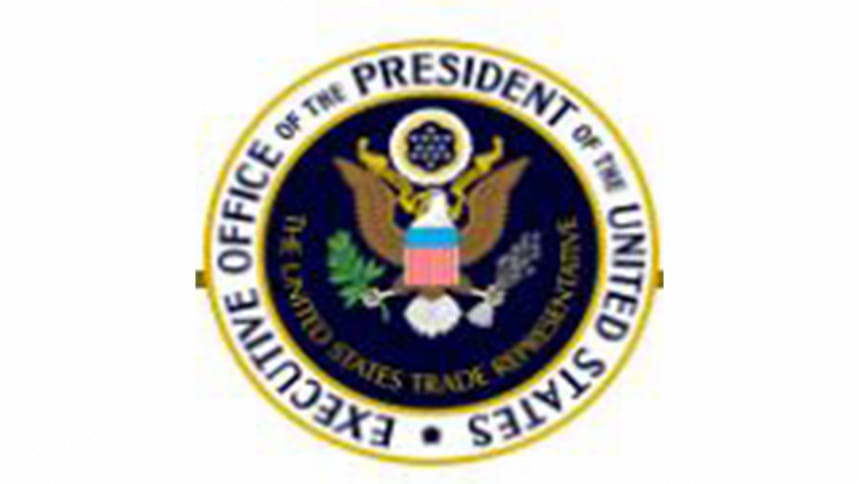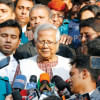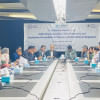USTR inquires about labour situation

Visiting officials of the United States Trade Representative (USTR) yesterday sought the views of union leaders from different economic sectors on the labour situation in Bangladesh across six major areas.
The areas were: freedom of association, collective bargaining agent, trade union registration, unfair labour practices, workers' wages and uniform labour laws for both inside and outside of Export Processing Zones (EPZs).
Local union leaders and USTR officials discussed these issues at a meeting organised by the Solidarity Centre at its office in Dhaka.
Md Towhidur Rahman, president of the Bangladesh Apparels Workers Federation, was present at the meeting attended by five or six union leaders from the country.
After the meeting, Rahman said the union leaders wanted relaxation of some provisions of the labour law so that workers can enjoy the benefit of freedom of association at the factory level.
Currently, there are some provisions in the labour law that have been acting as barriers to this end.
For instance, if workers want to form a union, holding two board meetings with all the members is necessary.
So, union leaders demanded that these meeting be held by an executive committee rather than all the workers, he added.
Besides, the consent of 20 per cent of a factory's workforce is mandatory for forming a union at the unit. As such, union leaders urged for the withdrawal of this threshold and opined that the consent of just 20 workers should be enough.
Union leaders also urged for easing the online union registration process as they have to submit printed documents along with the submission of an application online.
They also requested stopping unfair labour practices at the factory level. For instance, workers who are involved in the formation of a union must not be terminated or face any criminal case against them.
The union leaders also informed that they want uniform labour laws at factories both inside and outside of EPZs as just two labour law are practiced at present.
They also demanded Tk 23,000 per month as the minimum salary for garment workers, Rahman said.
The USTR team mainly wanted to know whether the roadmap of the International Labour Organisation (ILO) is being followed in labour issues, he added.
Razequzzaman Ratan, president of the Socialist Labour Front, a left-leaning labour rights body, was also present at the meeting.
Echoing the views of Rahman, Ratan said they mainly discussed how to smoothen rules related to the formation of unions at the factory level.
For example, Ratan said the 20 per cent threshold is really detrimental for the formation of workers' unions.
Instead, the government should follow the conventions of the ILO in allowing the formation of unions as Bangladesh has also ratified those conventions, he added.
Both Rahman and Ratan said they already submitted their views on these six issues along with other agenda to the Ministry of Labour and Employment in January this year.
From the US side, Brian Luti, director for South Asia regional affairs at the National Security Council, Brendan Lynch, deputy assistant of the USTR, and Mahnaz Khan, director for South Asia, attended the meeting.

 For all latest news, follow The Daily Star's Google News channel.
For all latest news, follow The Daily Star's Google News channel. 








Comments